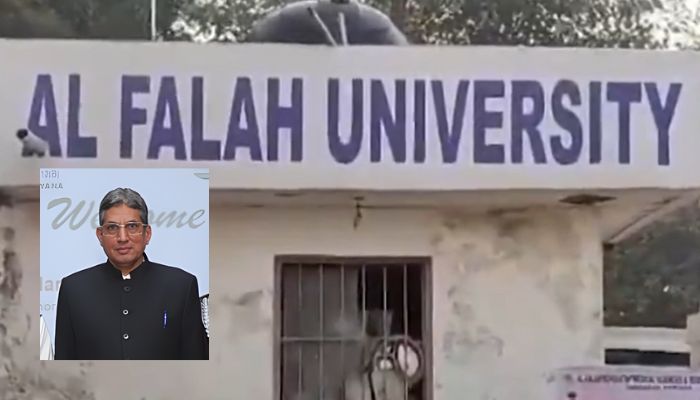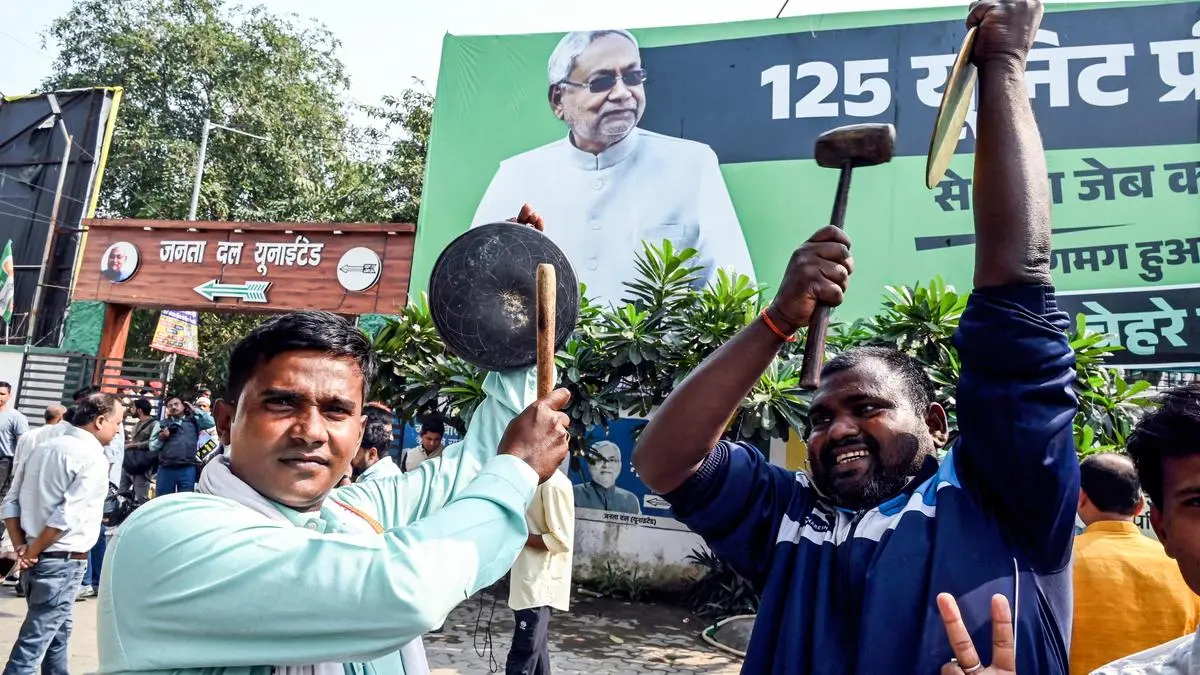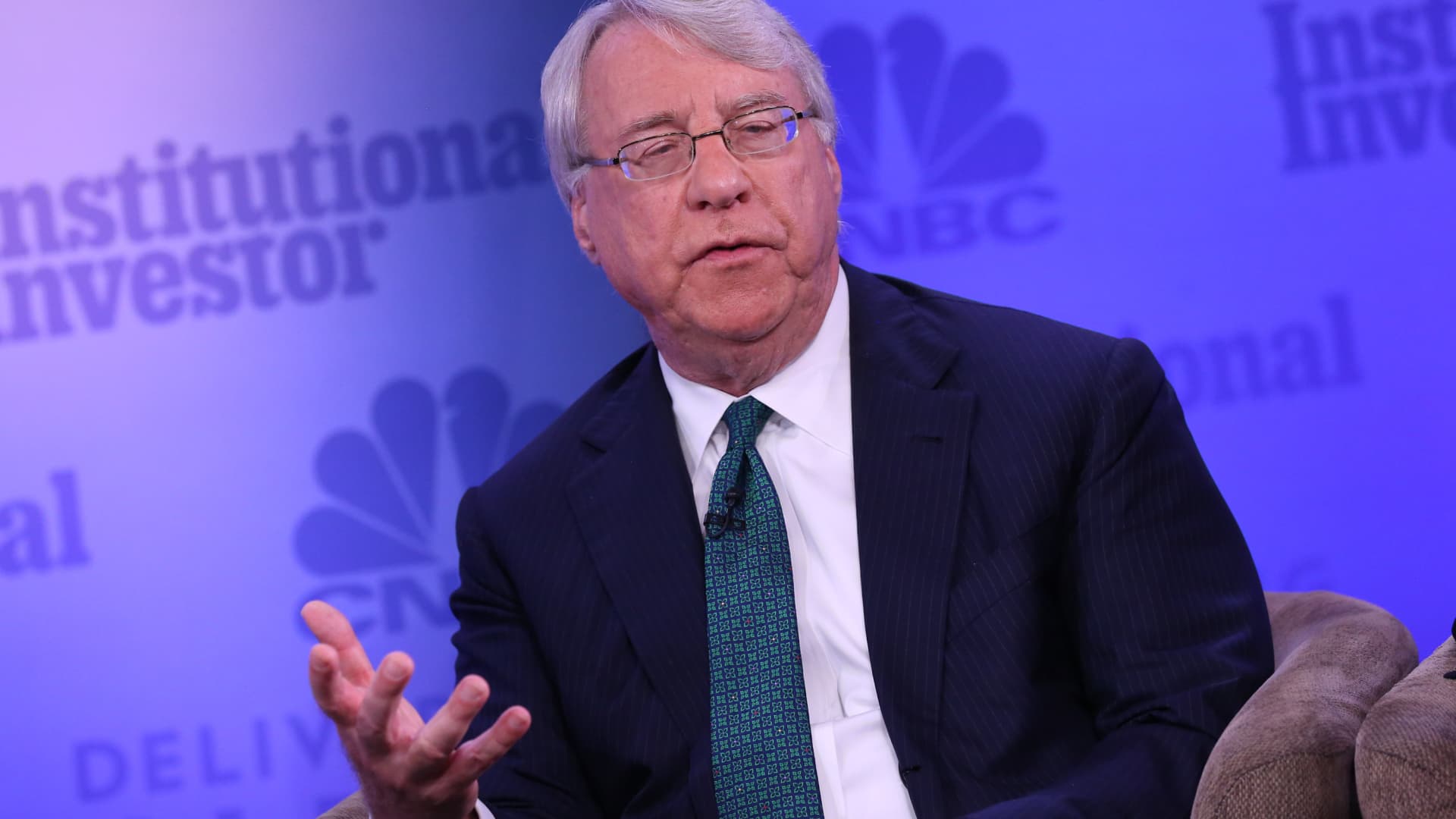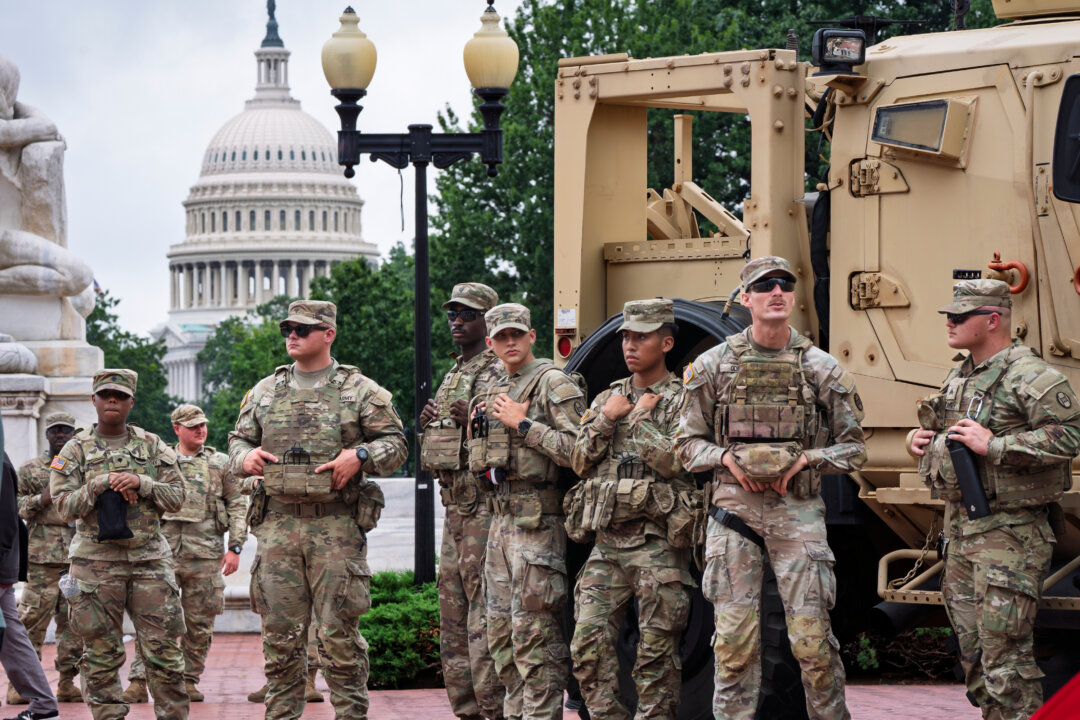Jungle Raj, nepotism and more: 14 rallies of PM Modi with special focus on development policies, women empowerment that set the tone for Bihar assembly elections
The issues highlighted by Prime Minister Narendra Modi during the Bihar assembly elections have altered the trajectory and focus of the electoral process. On 24th October, he commenced his election campaign by visiting the family of Jannayak Karpuri Thakur in his native village. PM Modi made a special appeal to women and emphasised the welfare initiatives undertaken by the NDA government. The infrastructure developments that are propelling the pace of progress were notably addressed, showing considerable improvement in recent years. PM Modi tried to capture the hearts of the populace by enumerating the accomplishments of the National Democratic Alliance (NDA) government alongside pointing out the shortcomings of the Lalu-Rabri regimes and the scandals associated with the United Progressive Alliance (UPA) rule. पीएम श्री @narendramodi ने आज बिहार के समस्तीपुर स्थित कर्पूरी ग्राम में जननायक 'भारत रत्न' स्वर्गीय कर्पूरी ठाकुर जी को श्रद्धांजलि अर्पित की। pic.twitter.com/bthGwhrktJ— BJP (@BJP4India) October 24, 2025 PM Modi has conducted 14 rallies and made seven visits to Bihar. He travelled to Begusarai, Muzaffarpur, Saharsa, Chhapra, Katihar, Arrah, Nawada, Bhagalpur, Araria, Aurangabad and Bhabua, followed by Sitamarhi and Bettiah. He went to the state 4 times and addressed 12 rallies there during 2020 assembly election too. This time around, he has spoken at at least 2 rallies in each visit. ‘Women hold the key to power’ Women accounted for approximately 65% of voter turnout in the initial phase of elections with their voting rate exceeding that of men by 8%. It is believed that the rise is a result of programs aimed at their welfare. Notably, the recent deposit of ₹10,000 into women’s accounts under a welfare initiative has played in a crucial role in boosting confidence. Additionally, the promise of loans up to ₹2 lakh for business growth is also appealing to them. Women in Bihar have demonstrated a preference for the benefits being offered by the NDA government, including free rations for women and bicycles for schoolgirls. Thus, it is considered that they have leaned towards the NDA and participated in voting in considerable numbers. This leads to the question: will women’s votes be instrumental in shaping the government? Nitish Kumar, who rose to power in 2005, prioritised women’s welfare and introduced numerous schemes for them. This is why women of Bihar have been a steadfast vote bank for Nitish Kumar’s leadership. Secondly, women in Bihar are regarded as more politically conscious compared to those in other states. They illustrated increased enthusiasm upon receiving ₹10,000 in their accounts. If the NDA government regains power following the assembly polls, the credit will certainly be attributed to women. This might set a national precedent for perceiving women as an important voting bloc. Issue of demeaning Chhath PM Modi also brought attention to the disrespect shown towards Chhath, the most significant festival in Bihar. This celebration is predominantly observed by women and is profoundly embedded in the beliefs of the entire state. PM Modi recounted how the Mahagathbandhan insulted Chhath and unmistakably signaled the intentions for Bihar, through a warning tone in campaign. Lalu-Rabri’s “Jungle Raj” Those who experienced the 15-year reign of Lalu Yadav and Rabri Devi prior to 2005 still remember the vivid, painful details of the chaos and violence that ruled the state. During his rally, PM Modi targeted the mafia and their political connections while also outlining the “Jungle Raj.” The NDA has effectively invoked memories of the horrifying past after Osama, the son of mafia leader Mohammad Shahabuddin, received a ticket from Siwan. The younger generation was told to read and learn about the state of affairs during the Jungle Raaj period. After the first round of voting, PM Modi spoke at a rally in Sitamarhi on 8th November and thanked the people for their spirited participation in the assembly elections. He stated, “The proponents of Jungle Raj have felt a 65-volt shock.” He further conveyed, “Jungle Raj signifies violence, cruelty, bitterness, poor values and corruption.” He explicitly mentioned that Bihar requires liberation from such misgovernance. सुशासन का सबसे अधिक फायदा हमारी माताओं-बहनों और बेटियों को होता है। बिहार में आज इसके एक नहीं, अनेक उदाहरण हैं… pic.twitter.com/sAMsPXcdYG— Narendra Modi (@narendramodi) November 8, 2025 Attack on nepotism and corruption Both Prime Minister Narendra Modi and Chief Minister Nitish Kumar are free from allegations of nepotism and corruption. As a result, both leaders launched vigorous attacks against the opposition regarding this matter. During multiple rallies, PM Modi charged former Congress chief and its prominent campaigner Rahul Gandhi alongside his RJD (Rashtriya Janata Dal) counterpart as well as chief ministerial candidate Tejashwi Yadav with nepotism and corruption. PM Modi stat
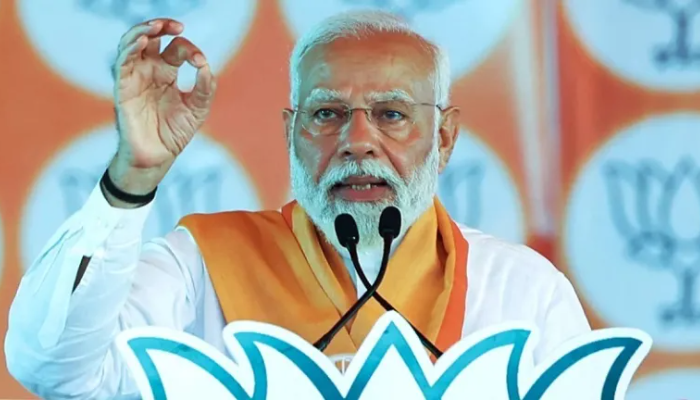


The issues highlighted by Prime Minister Narendra Modi during the Bihar assembly elections have altered the trajectory and focus of the electoral process. On 24th October, he commenced his election campaign by visiting the family of Jannayak Karpuri Thakur in his native village. PM Modi made a special appeal to women and emphasised the welfare initiatives undertaken by the NDA government.
The infrastructure developments that are propelling the pace of progress were notably addressed, showing considerable improvement in recent years. PM Modi tried to capture the hearts of the populace by enumerating the accomplishments of the National Democratic Alliance (NDA) government alongside pointing out the shortcomings of the Lalu-Rabri regimes and the scandals associated with the United Progressive Alliance (UPA) rule.
पीएम श्री @narendramodi ने आज बिहार के समस्तीपुर स्थित कर्पूरी ग्राम में जननायक 'भारत रत्न' स्वर्गीय कर्पूरी ठाकुर जी को श्रद्धांजलि अर्पित की। pic.twitter.com/bthGwhrktJ
— BJP (@BJP4India) October 24, 2025
PM Modi has conducted 14 rallies and made seven visits to Bihar. He travelled to Begusarai, Muzaffarpur, Saharsa, Chhapra, Katihar, Arrah, Nawada, Bhagalpur, Araria, Aurangabad and Bhabua, followed by Sitamarhi and Bettiah. He went to the state 4 times and addressed 12 rallies there during 2020 assembly election too. This time around, he has spoken at at least 2 rallies in each visit.
‘Women hold the key to power’
Women accounted for approximately 65% of voter turnout in the initial phase of elections with their voting rate exceeding that of men by 8%. It is believed that the rise is a result of programs aimed at their welfare. Notably, the recent deposit of ₹10,000 into women’s accounts under a welfare initiative has played in a crucial role in boosting confidence. Additionally, the promise of loans up to ₹2 lakh for business growth is also appealing to them.
Women in Bihar have demonstrated a preference for the benefits being offered by the NDA government, including free rations for women and bicycles for schoolgirls. Thus, it is considered that they have leaned towards the NDA and participated in voting in considerable numbers.
This leads to the question: will women’s votes be instrumental in shaping the government? Nitish Kumar, who rose to power in 2005, prioritised women’s welfare and introduced numerous schemes for them. This is why women of Bihar have been a steadfast vote bank for Nitish Kumar’s leadership.
Secondly, women in Bihar are regarded as more politically conscious compared to those in other states. They illustrated increased enthusiasm upon receiving ₹10,000 in their accounts. If the NDA government regains power following the assembly polls, the credit will certainly be attributed to women. This might set a national precedent for perceiving women as an important voting bloc.
Issue of demeaning Chhath
PM Modi also brought attention to the disrespect shown towards Chhath, the most significant festival in Bihar. This celebration is predominantly observed by women and is profoundly embedded in the beliefs of the entire state. PM Modi recounted how the Mahagathbandhan insulted Chhath and unmistakably signaled the intentions for Bihar, through a warning tone in campaign.
Lalu-Rabri’s “Jungle Raj”
Those who experienced the 15-year reign of Lalu Yadav and Rabri Devi prior to 2005 still remember the vivid, painful details of the chaos and violence that ruled the state. During his rally, PM Modi targeted the mafia and their political connections while also outlining the “Jungle Raj.”
The NDA has effectively invoked memories of the horrifying past after Osama, the son of mafia leader Mohammad Shahabuddin, received a ticket from Siwan. The younger generation was told to read and learn about the state of affairs during the Jungle Raaj period.
After the first round of voting, PM Modi spoke at a rally in Sitamarhi on 8th November and thanked the people for their spirited participation in the assembly elections. He stated, “The proponents of Jungle Raj have felt a 65-volt shock.” He further conveyed, “Jungle Raj signifies violence, cruelty, bitterness, poor values and corruption.” He explicitly mentioned that Bihar requires liberation from such misgovernance.
सुशासन का सबसे अधिक फायदा हमारी माताओं-बहनों और बेटियों को होता है। बिहार में आज इसके एक नहीं, अनेक उदाहरण हैं… pic.twitter.com/sAMsPXcdYG
— Narendra Modi (@narendramodi) November 8, 2025
Attack on nepotism and corruption
Both Prime Minister Narendra Modi and Chief Minister Nitish Kumar are free from allegations of nepotism and corruption. As a result, both leaders launched vigorous attacks against the opposition regarding this matter. During multiple rallies, PM Modi charged former Congress chief and its prominent campaigner Rahul Gandhi alongside his RJD (Rashtriya Janata Dal) counterpart as well as chief ministerial candidate Tejashwi Yadav with nepotism and corruption.
PM Modi stated, “These parties revolve around merely two families. One represents Bihar’s most corrupt family while the other signifies the nation’s most corrupt family.” He further remarked, “Those who did fodder scam believe they can fool Bihar. Those who promised employment to the underprivileged in exchange of land will not be able to deceive the public once more. The people of Bihar have now understand everything.”
Bihar is home to a large number of small-scale farmers. Hence, PM Modi also talked about their welfare and expressed, “To date, farmers in Bihar have received around 30,000 crore rupees. This entire sum has been credited to their accounts without any commission fees.”
“The individuals responsible for establishing the Jungle Raj, with their allies from the Congress party, would have misappropriated all this money that rightfully belonged to you and enriched themselves had they been in power. I am not the one making this claim. A former Congress Prime Minister (late Rajiv Gandhi) once declared that if one rupee is issued from Delhi, it becomes 15 paise by the time it arrives in the villages,” he added.
PM Modi also consistently highlighted the benefits that the poor receive from all the schemes of his government, including free ration, permanent housing and sanitation facilities.
Nationalism and the matter of infiltrators
PM Modi responded to Rahul Gandhi’s inquiry regarding the army’s valor during “Operation Sindoor.” He voiced, “Terrorists were eliminated by crossing into Pakistan during Operation Sindoor. The Congress-RJD coalition disapproved of this military action. Bombings were occurring in Pakistan while the first family of Congress was restless.” He mocked that both Pakistan and the Congress leaders have yet to overcome the impact of the operation. He charged the I.N.D.I. Alliance with being soft towards infiltrators and vowed to create an “infiltrator-free India.”
‘Mahagathbandhan will be at each other’s throats after the assembly polls’
PM Modi poked fun at the Mahagathbandhan for their inability to achieve a complete agreement on seat-sharing, their failure to announce Tejashwi Yadav as the chief ministerial candidate during Rahul Gandhi’s visit to Bihar and then announcing his name for the post under pressure.
He commented, “The Congress not only put the prince of Jungle Raj in a difficult position but also declined to concur on the chief minister position. The RJD in response decided to teach Congress a lesson by nominating its own candidate against the Bihar Pradesh Congress Committee president. These two parties are in conflict and reports disclose that Congress members are resolute in their efforts to defeat RJD at every polling station.”
‘Rahul Gandhi fled just before the state elections’
Rahul Gandhi commenced his election campaign in Bihar with considerable enthusiasm. He even spearheaded a “Nyay Yatra” (Justice March) in the state, striving to engage with the public. However, he quickly lost his passion. The Lok Sabha MP was “absent” from Bihar for 57 days, despite the election campaign being in full swing. During this time, he was seen travelling overseas, meeting with supporters in Uttar Pradesh and Haryana as well as enjoying sweets in national capital.
He contested the SIR (Special Intensive Revision) and alleged vote theft yet he was unable to persuade the public that the drive had “cut” votes. His repeated allegations against the Election Commission of India have failed persuade the voters.
No resentment towards Nitish government
Despite Nitish Kumar’s two-decade governance, there has been a lack of public anger towards him. Hence, the usual anti-incumbency sentiments that many political leaders inadvertently trigger have been largely absent in Nitish Kumar’s case. Nevertheless, there was notable public discontent in relation to employment opportunities. Therefore, the NDA pledged to generate 10 million jobs in Bihar as part of its manifesto.
PM Modi also reiterated this promise during his rally. Furthermore, the issue of migration has been a major concern for Biharis. PM Modi reassured the public that the government was paying heed to these matters by promoting education, skill development and advocating slogans like “Work in Bihar and make Bihar proud.”
Read the report in Hindi here.

















































